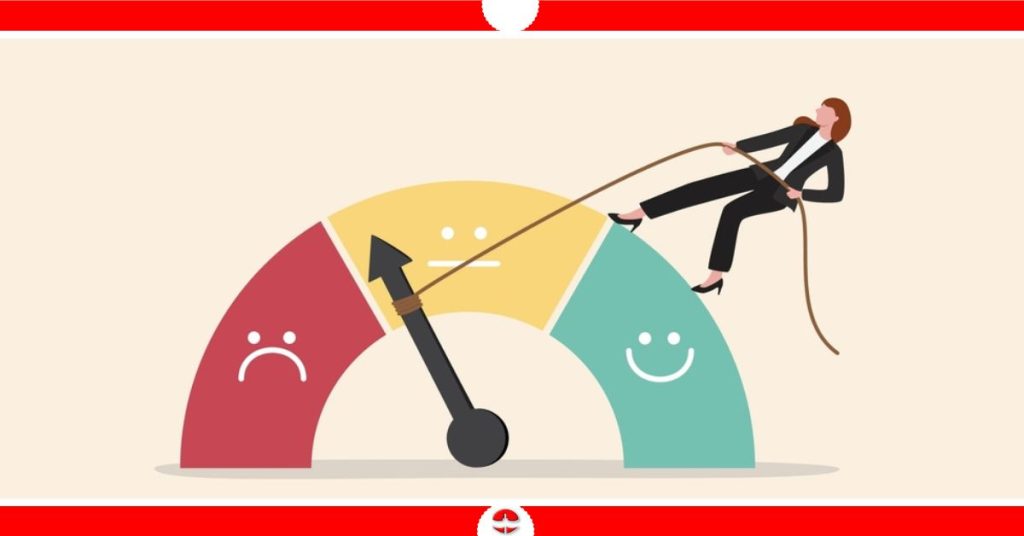Have you ever heard the saying, "Revenge is best served cold"? Imagine eating a cold pizza. Exactly, that is what revenge tastes like, so why serve it?
You don’t enjoy revenge like some exquisite Lasagna, French Toast, or some Sushi. No, you don’t. When you give in to the urge to retaliate, it gives a false sense of release and relief that you’ve given the other person a taste of their own medicine.
Let me tell you something: revenge might seem like the right thing to do, but it actually doesn’t solve anything. Instead, it reveals the weakness of your character, pollutes your soul, creates a barrier between you and the other person, and deprives you of peace.
You know, there’s a Bible verse that offers a good counsel. It’s in Romans 12:19, and it says, “Do not take revenge, my dear friends, but leave room for God’s wrath.” It means that instead of trying to get back at someone who hurt you, you should let God handle it. Because holding onto anger and wanting revenge just makes you feel worse in the end.
The Revenge Loop And Its Wild Fire
When someone hurts us, it’s natural to feel angry and want to get back at them. But did you know that revenge can start a never-ending cycle of hurt and pain? It’s like when a kid pushes someone on the playground, and then they push him or her back even harder. Then he or she pushes them again, and it just keeps going on and on.
In the Bible, there’s a verse in Proverbs 15:1 that says, “A gentle answer turns away wrath, but a harsh word stirs up anger.” This means that when we respond to anger with more anger, it only makes things worse. It’s like adding fuel to a fire – it just makes the flames bigger and harder to control.
When people seek revenge, it doesn’t just affect them – it affects everyone around them too. Families, friends, and even whole communities can get caught up in the cycle of revenge. It’s like a ripple effect, spreading hurt and pain wherever it goes.
We see how revenge can tear families apart and ruin lives. Like when someone gets hurt or killed because of a feud between gangs or countries. It’s heartbreaking to see how much pain revenge can cause.
“You have heard that it was said, ‘Eye for eye, and tooth for tooth.’ But I tell you, do not resist an evil person. If anyone slaps you on the right cheek, turn to them the other cheek also.”
In Matthew 5:38-39, Jesus was showing us that revenge only leads to more hurt, but forgiveness can break the cycle and bring healing.
Revenge Is Not The Solution
It can feel pretty good, at least for a while, when we get back at someone who hurts us. It’s like when you finally get to eat your favourite dessert after waiting for so long. But just like how that sweet taste disappears once you finish eating, the satisfaction from revenge doesn’t last long either.
You’d learn in Ecclesiastes 7:8 that, “The end of a matter is better than its beginning, and patience is better than pride.” This means that even though revenge might feel good at first, it’s better to be patient and wait for things to work out in the end. Because in the long run, revenge only leads to more problems.
Have you ever felt like something was missing even though you got what you wanted? That’s how revenge can feel sometimes. Sure, you might have hurt the other person like they hurt you, but deep down, you still feel empty inside. It’s like trying to fill a bucket with a hole in it – it never works.
“What good will it be for someone to gain the whole world, yet forfeit their soul?” This means that even if we get everything we want, it won’t matter if we lose ourselves in the process. And that’s exactly what revenge does – it takes away our peace of mind and leaves us feeling hollow.
The Pull Strategy Against Anger And Resentment
When you feel angry or resentful towards someone, it’s important to find healthy ways to deal with those emotions. One strategy is to take a deep breath and count to ten before reacting. It gives you a chance to cool down and think more clearly before you say or do something you might regret later.
Another strategy is to talk to someone you trust about how you’re feeling. Whether it’s a friend, family member, or counsellor, sharing your feelings can help you gain perspective and find support. And you know what? James 1:19 reminds that, “Everyone should be quick to listen, slow to speak and slow to become angry.” This means that it’s important to think before we react and try to understand where the other person is coming from.
Empathy is another strategy. That is, understanding where the other person is coming from – their feelings and thoughts. Everyone does something for a reason and though it is sometimes hard to see things from the point of view of the person who hurt us, empathy helps us to find healing and forgiveness.
…
You’ll like to read this (open in a new tab): The Power Of Understanding
…
You want to imagine what the other person might be going through. Maybe they were hurting or scared themselves when they hurt you. Or maybe they didn’t realize how much they were hurting you at the time. Whatever the reason, finding empathy for the person who hurt you can help you let go of anger and resentment and move towards forgiveness.
What Is Forgiveness?
“’Father, forgive them, for they do not know what they do.’ And they divided His garments and cast lots.” – Luke 23:34
He could have called forth a rain of fire and brimstone upon His accusers or instructed the earth to open and swallow them, but Jesus showed us what forgiveness truly means.
Forgiveness is giving someone another chance, even when they don’t deserve it. It’s not about saying that what they did was okay – it’s about letting go of the anger and hurt inside of you so that you can move forward. And you know what? Forgiveness isn’t just good for the person you’re forgiving – it’s good for you too!
“Bear with each other and forgive one another if any of you has a grievance against someone. Forgive as the Lord forgave you.” – Colossians 3:13.
Just like how God forgives us when we make mistakes, we should forgive others too. And when we do, it brings peace to our hearts and minds, and sets us free from the burden of anger and resentment.
You know, forgiveness isn’t always easy, especially when the hurt runs deep. Sometimes, it can feel like the hardest thing in the world to do. But the thing is, forgiveness is a choice – a choice that only you can make. It might be hard at first, but in the end, you feel better knowing that you did the right thing.
There are so many stories out there that show us just how transformative forgiveness can be. Like the story of Corrie ten Boom, who forgave the people who imprisoned her during the Holocaust. Instead of holding onto anger and bitterness, she chose to forgive them and even went on to help others find healing through forgiveness.
Then there are the personal stories of people like you and me who have experienced the power of forgiveness firsthand. Whether it’s forgiving a friend who hurt us or letting go of anger towards a family member, we’ve seen how forgiveness can bring healing and restoration to our relationships.
Research has shown that forgiveness can have a lot of benefits for our mental health and well-being. It can reduce stress, anxiety, and depression, and improve our relationships with others. So, to develop the capacity to forgive, we can cultivate healthy practices that promote inner peace and help to let go of negative emotions.
One practice is mindfulness meditation, where we focus on the present moment and let go of thoughts and feelings that are weighing us down. Another practice is prayer or reflection, where we turn to God for guidance and support.
“Do not be anxious about anything, but in every situation, by prayer and petition, with thanksgiving, present your requests to God. And the peace of God, which transcends all understanding, will guard your hearts and your minds in Christ Jesus.” – Philippians 4:6-7
When we turn to God with our worries and concerns, he can give us peace that goes beyond anything we can understand. And when we forgive, it’s like opening the door to God’s healing power in our lives.
So, whether it’s through meditation, prayer, or some other practice, finding ways to promote inner peace can help us let go of grudges and find healing and forgiveness.
You know, forgiveness is a powerful thing – it has the power to break the cycle of revenge and promote reconciliation in our communities. When you choose to forgive instead of seeking revenge, you’re saying, “I’m not going to let anger and bitterness control me anymore. I’m going to choose love and reconciliation instead.”
And this is a better way to live a peaceful and happy life.
Revenge Is Always Best Not Served At All
Revenge does more harm than good, and forgiveness holds the key to breaking free from the chains of hurt and resentment. While revenge may offer temporary satisfaction, it ultimately perpetuates a loop of pain and suffering that leaves us feeling empty and alone.
…
You’ll like to read this too (open in a new tab): Not Happy? Here’s A Guide To Finding Joy
…
I encourage you to embrace forgiveness. Whether it’s forgiving a friend who has let you down, a family member who has hurt you, or even yourself for past mistakes, know that forgiveness is a gift you give to yourself as much as to others.
It’s a choice – a brave and transformative choice – that has the power to set you free from the burdens of anger, resentment, and bitterness.
Remember, “true strength lies not in seeking retribution, but in extending grace and compassion to those who have wronged us.”
In a world often consumed by conflict and division, may we strive to embody the principles of forgiveness and reconciliation, and work towards building a more peaceful and forgiving world for ourselves and future generations.
So let us heed the call to forgive, to love, and to build bridges of understanding that unite rather than divide. For in the end, it is forgiveness that truly sets us free.
About The Author
Michael Olajubu
Michael Olajubu is a poet, author and creative web content developer who believes in God. He is currently the lead content writer at The Truth Media Blog.













More Stories
The Benefits Of Christian Fellowship
Abstain From All Appearances Of Evil
30 Best Christian Movies On Netflix In 2024